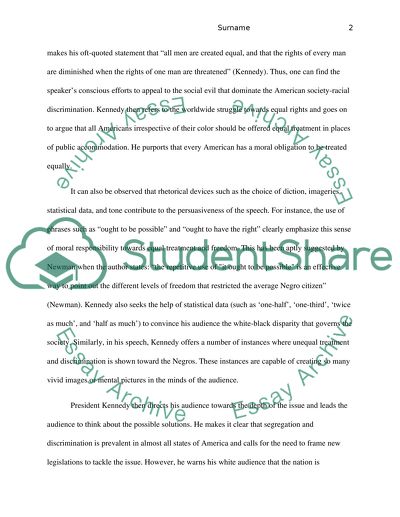Cite this document
(“John F Kennedy Civil Rights Address Research Paper”, n.d.)
Retrieved from https://studentshare.org/english/1442885-john-f-kennedy-civil-rights-address
Retrieved from https://studentshare.org/english/1442885-john-f-kennedy-civil-rights-address
(John F Kennedy Civil Rights Address Research Paper)
https://studentshare.org/english/1442885-john-f-kennedy-civil-rights-address.
https://studentshare.org/english/1442885-john-f-kennedy-civil-rights-address.
“John F Kennedy Civil Rights Address Research Paper”, n.d. https://studentshare.org/english/1442885-john-f-kennedy-civil-rights-address.


